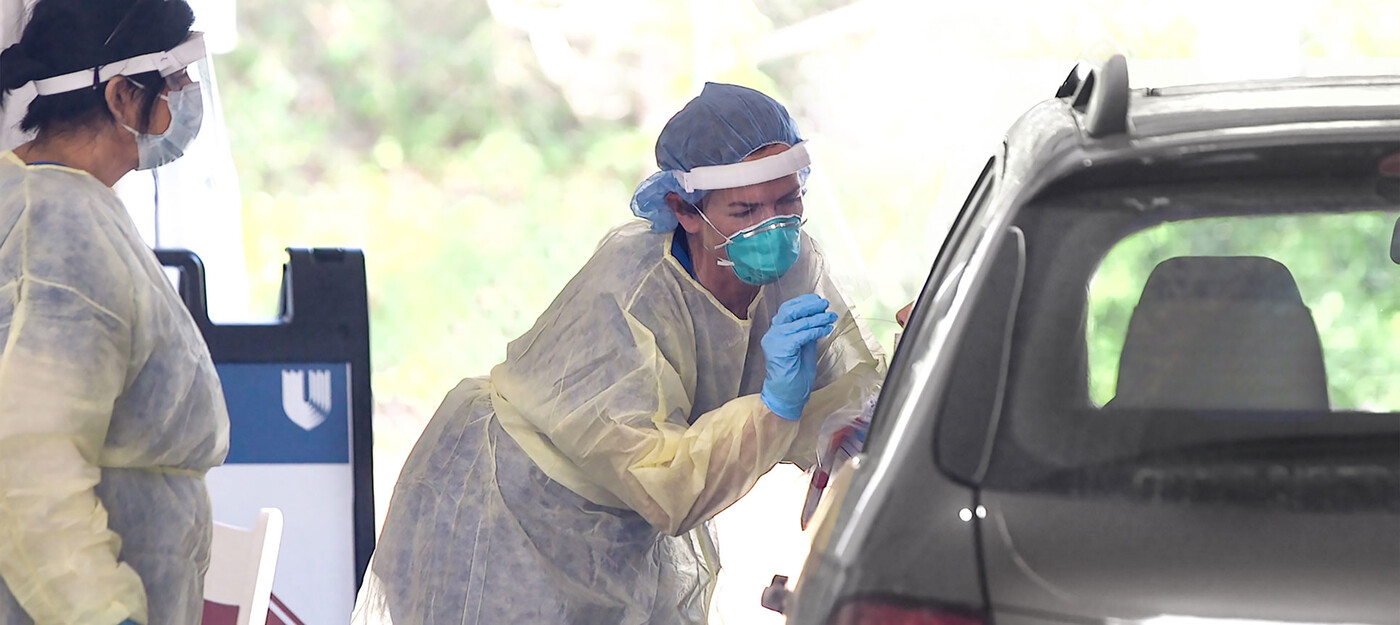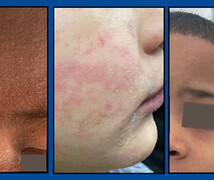Two types of tests are available for COVID-19, a virus test, and an antibody test. The virus test determines if the virus is currently present in your body. An antibody test looks for signs that your body mounted an immune response to fight off the virus in the past. Here, Michael Datto, MD., PhD, Associate Vice President for Duke University Health System Clinical Laboratories, explains the role of each test, and when you should get one.
COVID-19 Virus Testing
The best way to determine if you currently have COVID-19 is through a nasal swab (more specifically, a nasal-pharyngeal swab), which takes a sample of mucus or saliva from the back of the nose and throat. Within 24 hours, this diagnostic test can determine if the novel coronavirus is present in your body. It is typically performed on people who have symptoms of COVID-19 – coughing, fever, shortness or breath. If you suspect you have COVID-19, contact your provider. Duke has several sites throughout the Triangle where you can get tested.
While the nasal-pharyngeal swab test has the highest degree of accuracy, it may return a false negative result if it is not performed correctly, if the virus is deep in the lungs, or if there isn’t a lot of virus in your system. If you feel sick, yet your test comes back negative, assume you have coronavirus and self-isolate.
If you don’t have symptoms but are coming to the hospital for surgery or a procedure, you may be tested for COVID-19. “This is done to ensure the safety of our patients and our team,” Datto said. Virus tests are also performed on employees who are symptomatic or who may be suspected of having COVID-19. This ongoing testing is performed, in conjunction with other measures such as enhanced cleaning, hand sanitizing, and mandatory masking throughout Duke hospitals and clinics, to minimize the spread of the virus and to create a safe environment for our patients and health care providers.
COVID-19 Antibody Testing
Antibody testing can determine if you had the virus in the past. Antibodies are proteins developed by the body in response to an infection. They can take anywhere from one to three weeks to develop. While the test can indicate if your body produced antibodies, at the moment, that’s all it can do.
“It’s not a definitive marker for immunity,” Datto said. “We can’t do the test and say ‘we see a positive result, you’re safe now. You can’t re-catch the virus.’ We don’t know that to be true. We don’t know how long immunity to coronavirus lasts and what level of antibody is needed to make us immune.”
While antibody testing may be useful to scientists as they study the virus and how it might spread in a community, it is too early for it to be useful to individuals. For this reason, Duke is not offering antibody testing outside of research. “As the head of clinical lab services at Duke, it’s hard for me to offer a test and not be able to tell you what to do with it,” Datto said. That may change in the future, as more information develops.





